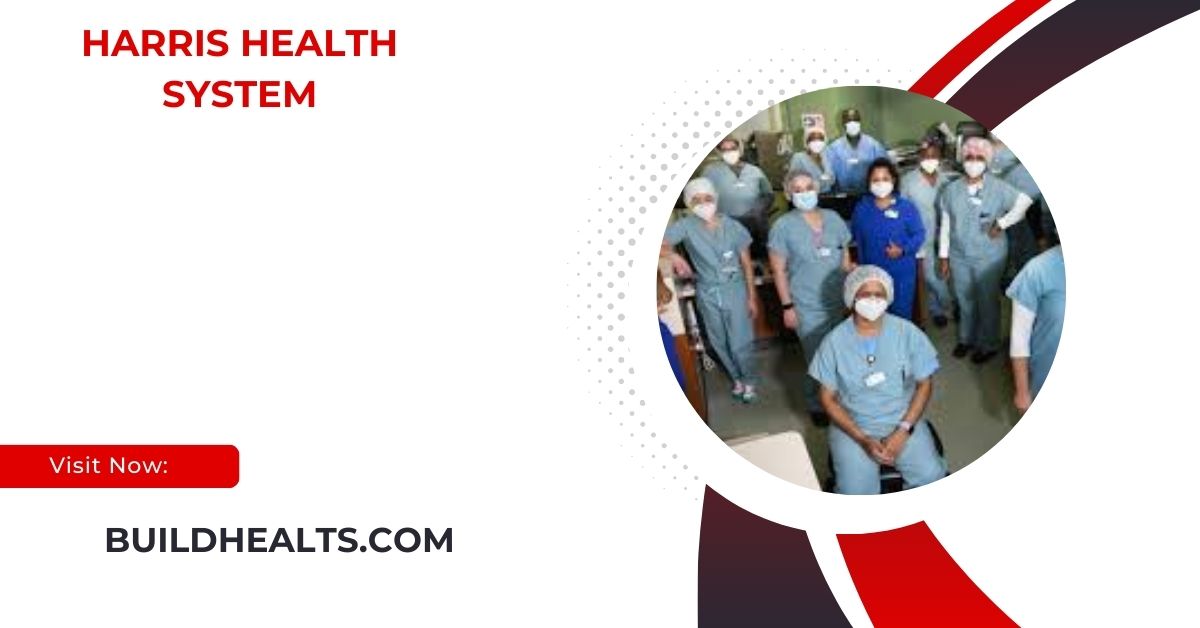Ohio provides diverse healthcare job opportunities in nursing, medicine, allied health, administration, and support roles, with a growing demand for qualified professionals.
This guide will help you understand the different job opportunities, how to find them, and what you need to succeed in the healthcare job market in Ohio.
Introduction to Ohio Healthcare Jobs:
Ohio is one of the most populous states in the United States, and its healthcare system is crucial for the well-being of its residents. The state boasts a variety of healthcare facilities, including hospitals, nursing homes, outpatient clinics, and specialized care centers. As a result, healthcare professionals are always in demand. In addition to this, Ohio has several
universities, colleges, and medical schools that train individuals to pursue healthcare careers.
For anyone considering a career in healthcare, Ohio offers a range of job opportunities, whether you’re interested in becoming a nurse, a physician, or working in administrative or support roles. This article will provide insights into the different healthcare jobs available, how to apply for them, and what the job market in Ohio looks like.
Types of Healthcare Jobs Available in Ohio:
Ohio offers a diverse range of healthcare jobs, each requiring different skills and qualifications. Below are some of the most common healthcare job categories in Ohio:
Nursing Jobs in Ohio:
Nurses play a critical role in the healthcare system by providing direct patient care. Nursing jobs in Ohio are diverse and abundant, with hospitals, clinics, and nursing homes always in need of qualified nurses. The most common nursing jobs include:
- Registered Nurses (RNs): Registered nurses are responsible for assessing patients, administering medications, and collaborating with doctors to create care plans. RNs typically work in hospitals, outpatient clinics, and nursing homes.
- Licensed Practical Nurses (LPNs): LPNs provide basic nursing care under the supervision of registered nurses or physicians. They often work in long-term care facilities or assist with patient care in hospitals.
- Nurse Practitioners (NPs): NPs are advanced practice nurses who have more training and education than RNs. They can diagnose conditions, prescribe medications, and provide primary and specialized care to patients.
Ohio has many nursing job opportunities, especially in cities like Cleveland, Columbus, and Cincinnati. Many hospitals, including the OhioHealth system, are frequently hiring nurses at all levels.
Physician Jobs in Ohio:
Physicians are essential members of the healthcare team, and Ohio is home to numerous hospitals and clinics looking for doctors to care for patients. Physician jobs in Ohio span across various specialties, including:
- Family Medicine: Family physicians provide comprehensive care for patients of all ages and are often the first point of contact in the healthcare system.
- Specialists: Ohio hospitals and private practices need specialists in areas like cardiology, pediatrics, oncology, orthopedics, and more.
- Hospitalists: These doctors work exclusively in hospitals, providing care for patients admitted to inpatient units.
Physicians in Ohio can work in various settings, including private practices, community clinics, and teaching hospitals. Ohio’s healthcare system is continually expanding, creating an ongoing demand for medical professionals.
Allied Health Jobs in Ohio:
Allied health professionals are essential to the healthcare team, supporting the work of doctors and nurses. Allied health jobs in Ohio cover a wide variety of roles, including:
- Physical Therapists (PTs): PTs help patients recover from injuries or surgeries by providing rehabilitation services. They can work in hospitals, outpatient clinics, or home healthcare settings.
- Medical Assistants (MAs): MAs provide administrative and clinical support in healthcare settings. They may take patient histories, assist with exams, or handle medical records.
- Radiologic Technologists: These professionals operate medical imaging equipment, such as X-rays and MRIs, to assist doctors in diagnosing patients.
- Pharmacy Technicians: Pharmacy technicians assist pharmacists in preparing and dispensing medications, ensuring the safe administration of prescriptions.
Healthcare Administration Jobs in Ohio:
Healthcare administrators play an important role in managing healthcare facilities, ensuring that everything runs smoothly behind the scenes. Administration jobs in Ohio include:
- Medical Office Managers: These professionals oversee the daily operations of medical offices, ensuring that patient care runs efficiently, and administrative tasks are completed.
- Healthcare Executives: Healthcare executives work at the top levels of hospital and healthcare system management. They help design strategies for efficient patient care and ensure that their facilities are operating within budgetary constraints.
- Health Information Managers: These individuals manage the medical records of patients, ensuring that the information is up to date and secure.
Support and Technician Roles:
Support staff plays a vital role in maintaining a safe and effective healthcare environment. Some of these jobs include:
- Medical Billers and Coders: These professionals ensure that patient services are billed correctly and that insurance claims are processed efficiently.
- Sterile Processing Technicians: These workers clean and sterilize medical instruments, ensuring that they are safe to use in surgeries and medical procedures.
- Environmental Services Technicians: These individuals maintain cleanliness and sanitation in healthcare facilities, which is vital to preventing infections.
Types of Healthcare Jobs Available in Ohio:
Ohio offers a diverse range of healthcare jobs, each requiring different skills and qualifications. Below are some of the most common healthcare job categories in Ohio:
Registered Nurses (RNs):
Registered Nurses (RNs) in Ohio are essential for patient care, including assessing health, administering medications, and educating patients. They work in hospitals, outpatient clinics, nursing homes, and other healthcare settings. To become an RN in Ohio, you need a nursing degree from an accredited program and must pass the NCLEX-RN exam. RNs play a vital role in coordinating care and providing comprehensive healthcare services to individuals in various clinical environments across the state.
Physicians and Surgeons:
Physicians and surgeons in Ohio have abundant career opportunities, especially in specialties such as cardiology, oncology, and neurology. To pursue a career in this field, individuals must complete medical school, undergo residency training, and earn board certification in their chosen specialty. The demand for healthcare professionals in Ohio continues to grow, with particular need in underserved areas. Physicians and surgeons are essential for diagnosing and treating a wide range of medical conditions in patients.
Medical Assistants (MAs):
Medical Assistants (MAs) in Ohio support healthcare providers by handling both clinical and administrative tasks. Their responsibilities include taking patient vitals, preparing exam rooms, assisting with minor procedures, and managing patient records. To become an MA, candidates need a high school diploma, with additional certification (like CMA) enhancing job prospects. MAs are key team members in medical offices and clinics, helping physicians with day-to-day operations to ensure effective and efficient patient care delivery.
Physical Therapists (PTs):
Physical Therapists (PTs) in Ohio specialize in helping patients recover from injuries or surgeries by creating personalized rehabilitation plans. They work in various settings, including hospitals, outpatient clinics, and rehabilitation centers. To become a licensed PT, you must complete a doctoral degree in physical therapy from an accredited institution and pass the National Physical Therapy Exam. PTs play a crucial role in improving patient mobility, managing pain, and enhancing overall physical health and well-being.
Healthcare Administrators:
Healthcare Administrators in Ohio oversee the management and operational aspects of healthcare facilities such as hospitals, nursing homes, and private practices. Their responsibilities include budgeting, coordinating services, ensuring regulatory compliance, and optimizing facility efficiency. To become a healthcare administrator, a master’s degree in health administration or a related field is typically required. Experience in healthcare management is also essential for success in this leadership role, ensuring smooth operations within healthcare settings to deliver quality services.
FAQ’S
1. What are the most common healthcare jobs in Ohio?
The most common healthcare jobs in Ohio include nursing roles (RNs, LPNs, NPs), physicians, physical therapists, medical assistants, and healthcare administrators.
2. How can I find healthcare jobs in Ohio?
You can find healthcare jobs in Ohio through job portals like Indeed, Glassdoor, LinkedIn, and hospital-specific websites like OhioHealth.
3. What qualifications do I need for nursing jobs in Ohio?
To work as a nurse in Ohio, you need a nursing degree from an accredited program and must pass the NCLEX-RN exam for Registered Nurses or similar exams for other nursing roles.
4. What are the requirements for becoming a physician in Ohio?
Physicians in Ohio need to complete medical school, a residency program, and become board-certified in their specialty to practice medicine.
5. Are there healthcare administration job opportunities in Ohio?
Yes, Ohio has healthcare administration roles such as medical office managers, healthcare executives, and health information managers, which require a master’s degree in healthcare administration and relevant experience.
Conclusion
In conclusion, Ohio offers a wide range of healthcare job opportunities across various fields, including nursing, medicine, allied health, and administration. With a growing demand for healthcare professionals, the state provides numerous career paths for qualified individuals. By understanding the qualifications and application processes, prospective candidates can successfully navigate Ohio’s expanding healthcare job market.




